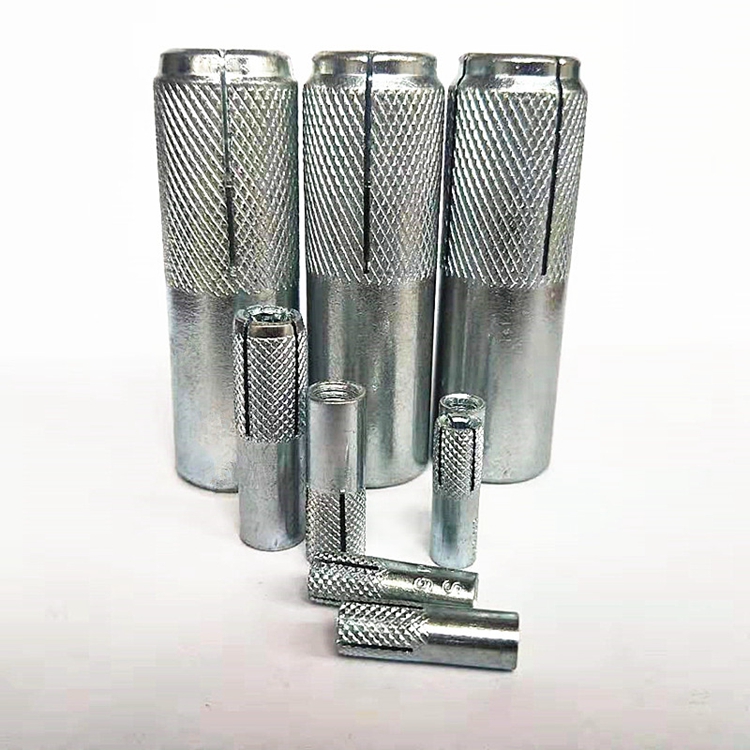Stud Bolt Machinery and Its Applications in Industrial Settings
Nov . 08, 2024 02:28 Back to list
Stud Bolt Machinery and Its Applications in Industrial Settings
Understanding the Basics of Stud Bolt Machines
In the realm of mechanical engineering and industrial manufacturing, the stud bolt machine plays a crucial role in the assembly of various components. Stud bolts are crucial fasteners used to connect two or more items by providing tensile strength and stability. They are particularly prominent in the construction, automotive, and aerospace industries, where maintaining structural integrity is paramount. This article explores the definition, function, applications, and advantages of stud bolt machines.
What is a Stud Bolt?
Before diving into the specifics of stud bolt machines, it is essential to understand what a stud bolt is. A stud bolt is essentially a cylindrical fastener that has threads on both ends and a smooth central section. Unlike traditional bolts that have a head on one end, stud bolts are installed by threading them into a drilled hole on both sides of the assembly, thereby allowing for two nuts to be used to secure it from either side. This design is advantageous because it reduces the risk of stripping threads, as no head is present to interfere with the fastening process.
The Role of Stud Bolt Machines
Stud bolt machines are specialized devices used in the manufacturing and processing of stud bolts. They automate the cutting, threading, and finishing processes that are necessary to produce high-quality stud bolts. Typically, these machines are equipped with advanced technology that ensures precision and efficiency, resulting in lower production times and reduced labor costs.
The operation of a stud bolt machine can be broken down into several key functions
1. Material Handling Raw materials, usually in the form of steel or alloy bars, are fed into the machine. 2. Cutting The machine cuts the material to the desired length, accounting for the dimensions required for the studs.
3. Threading Using threading tools, the machine creates threads on both ends of the stud. This is a critical step, as the quality of the threads affects the performance of the fastening.
4. Finishing Finally, the machine may apply various coatings or finishes to protect the stud bolts from corrosion and wear.
5. Quality Control Many modern stud bolt machines come equipped with sensors and monitoring systems to ensure that every produced piece meets stringent quality standards.
Applications of Stud Bolts and Machines
stud bolt machine

Stud bolts are used extensively across various sectors. In construction, they are vital for securing structural elements, such as beams and columns. In the automotive industry, they are used in engine assembly, where high tensile strength is crucial. The aerospace sector also relies heavily on stud bolts for securing critical components, such as wings and fuselage sections, where safety and reliability are non-negotiable.
The demand for stud bolts has led to innovations in stud bolt machines, which now incorporate CNC (Computer Numerical Control) technology. This advancement allows for even more precise manufacturing processes, reducing the risk of defects and improving overall production efficiency.
Advantages of Using Stud Bolt Machines
The usage of stud bolt machines brings several advantages
1. Increased Efficiency Automation allows for faster production speeds without compromising quality.
2. Consistency With computerized controls, each stud bolt produced is uniform, which is vital for applications requiring tight tolerances.
3. Cost-Effectiveness Although the initial investment in stud bolt machines may be significant, the long-term savings in labor and material waste often offset these costs.
4. Scalability Manufacturers can easily scale production up or down based on demand, enhancing their operational flexibility.
5. Safety With machines handling the more dangerous aspects of production, worker safety is significantly improved.
Conclusion
In summary, stud bolt machines represent a vital component of modern manufacturing processes, particularly in industries where the integrity of fastening solutions is essential. As technology continues to evolve, the capabilities and efficiencies of stud bolt machines are likely to enhance further, driving innovation across various sectors. Understanding the importance of these machines not only offers insights into the industry but also emphasizes the role of precision engineering in ensuring safety and reliability in everyday applications.
Latest news
-
High-Quality Panel Stud Bolt Reliable Panel Stud Bolt Factory & Suppliers
NewsJul.08,2025
-
High-Precision Fine Thread Locknuts Manufacturer & Supplier Custom Solutions
NewsJul.08,2025
-
PH Imperial Stud Bolt – High Strength Fasteners from Leading Supplier & Factory
NewsJul.07,2025
-
High-Quality Allen Wrench Bolts Leading Factory, Company & Suppliers
NewsJul.07,2025
-
Wholesale Ball Stud Bolt - High Quality Supplier & Factory Price Reliable Wholesale Ball Stud Bolt Company
NewsJul.06,2025
-
High-Strength Alloy Bolts Manufacturer & Supplier Quality Alloy Fasteners Factory
NewsJul.06,2025
